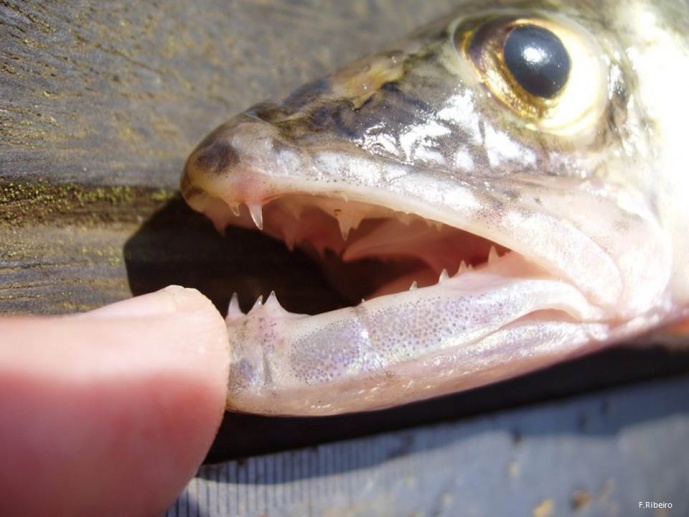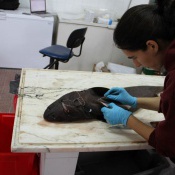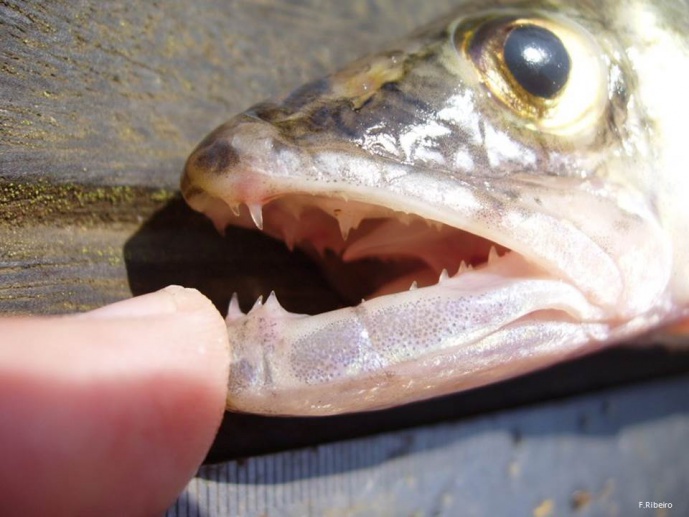FRISK - FReshwater fish InvaSions RisK assessment: identifying invasion routes
Societies are increasingly concerned with the economical costs of invasive species, but as well with the ecosystem services losses given the multitude of detrimental impacts attributed to invasive species. Currently, in Europe, the damages and costs caused by invasive species are approximately 12.5 billion Euros per year, and soon will rise to unsustainable levels. Identifying invasive species predominant pathways and understanding species spatial spread patterns are highly important goals for an effective management. This project focuses on freshwater fish biodiversity, since freshwater ecosystems are among the most heavily impacted by invasive species worldwide. Amongst vertebrates, freshwater fishes are the most introduced group across the globe, being also an indicator of invasion patterns of less conspicuous taxa.
Earlier studies showed high diversity of invasive fishes in south-western Europe (Iberia) as a result of introductions from central Europe due to recreational fisheries. Iberian Peninsula freshwater ecosystems encompass unique endemic rich fish diversity, many threatened due to invasive fishes. The current proposal aims to forecast the arrival of invasive fishes into Iberian Peninsula by 1) identifying the predominant European invasion routes into Iberia, 2) understanding the invasive fish spatial spread patterns focusing on Silurus glanis and Sander lucioperca and 3) mapping high invasion risk areas for Portugal considering recreational fisheries pressures and species natural spread. An online Early Warning System for Invasive Fish will be implemented, as a rapid detection tool for managers, but as well as a project outreach and environmental awareness product for stakeholder groups and public.
To identify invasion pathways and prioritize areas of direct management for invasive species are key objectives of the Aichi Biodiversity Target 9. This research project proposal will aim to contribute to this goal and reduce the current rate of arrival of invasive fishes into Iberia in the near future, helping to preserve its unique freshwater biodiversity, reduce the economic losses and maintain the ecosystem services.
Filipe Ribeiro - MARE (PI) | Bernardo Quintela - MARE | Christo Gkenas - MARE | Filipe Banha - MARE | Pedro Anastácio - MARE | João Gago - Inst. Politécnico de Santarém | Frederic Martí - UdL | Lukás Kalous - CULS | Adolfo Franco - ICNF | Jorge Bochechas - ICNF | Maria Cravo - ICNF | David Daniel - EDIA | Marta Gromicho - Bio4All


